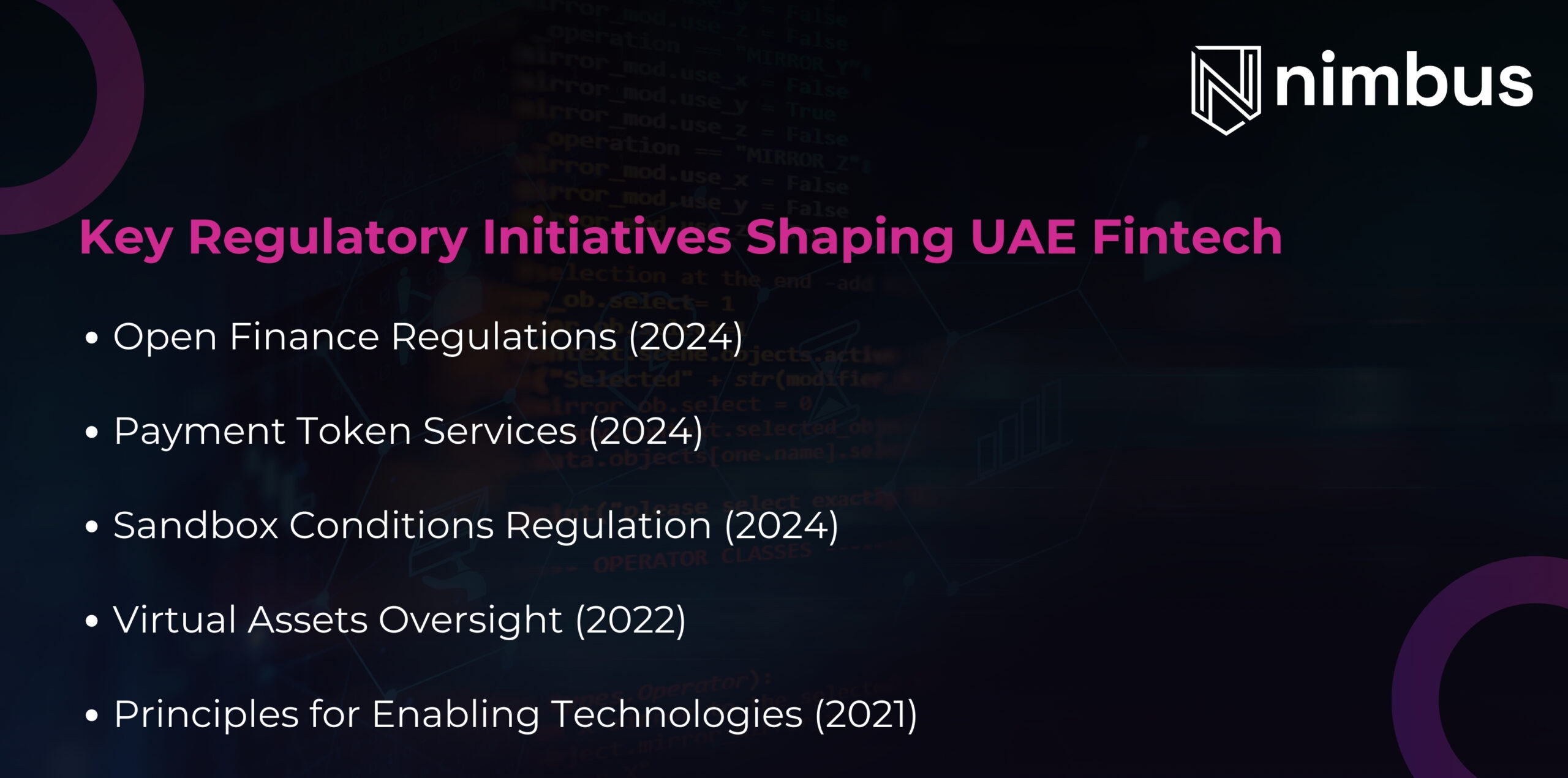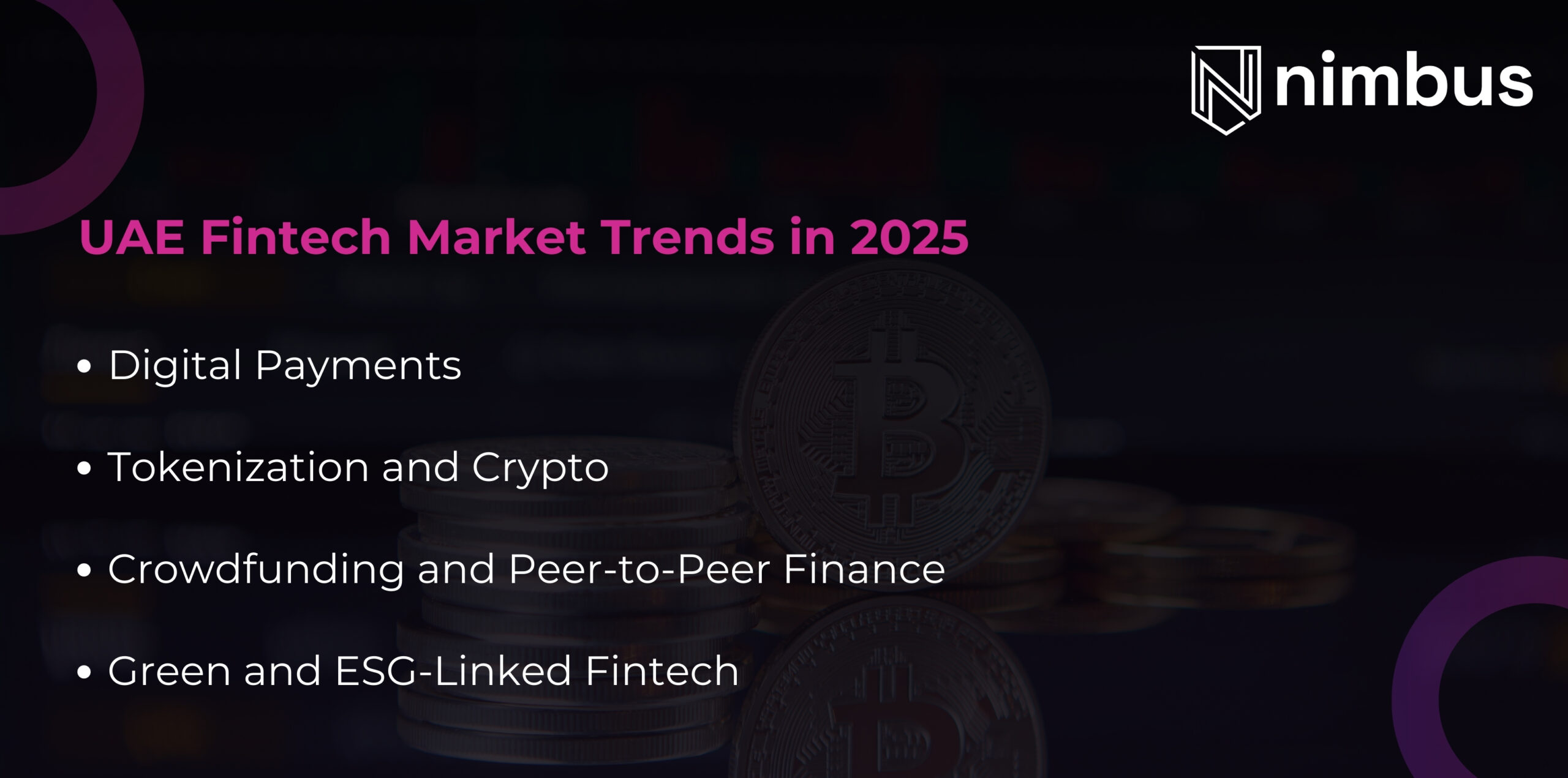Are you a fintech entrepreneur looking for the next big hub for global expansion? Or an investor seeking a region with progressive digital finance regulations and market potential for a compliant business setup?
The UAE has emerged as a prime destination for fintech innovation, offering a combination of regulatory sophistication, market depth, and global connectivity. In 2025, Dubai and the wider UAE have strengthened their position as regional and international fintech hubs.
By aligning onshore and free-zone regulations with international best practices, the country has created a fertile environment for digital payments, tokenization, open finance, and other emerging fintech technologies.
Let’s explore more details in this post.
– The UAE’s Multi-Layered Regulatory Landscape
The UAE’s fintech ecosystem is unique because it operates under a dual regulatory structure:
- Onshore Regulations: The Central Bank of the UAE (CBUAE) and the Securities and Commodities Authority (SCA) supervise activities such as digital banking, payment services, stored value facilities, crowdfunding, and securities-linked fintech operations.
- Free Zone Regulations: Key financial free zones, including the DIFC and ADGM, operate under independent regulators, the Dubai Financial Services Authority (DFSA) and the Financial Services Regulatory Authority (FSRA). Both use English common law frameworks, providing stability and predictability for international investors.
- Virtual Assets Oversight: The Virtual Assets Regulatory Authority (VARA) monitors cryptocurrencies and tokenized assets outside the DIFC, ensuring safe innovation in digital asset markets.
This multi-regulator approach balances innovation with financial stability, consumer protection, and anti-money laundering (AML) standards, creating a controlled yet dynamic environment for fintech growth.
– Licensing and Compliance in 2025
Entering the UAE fintech market requires navigating multiple licensing pathways:
- Free-zone startups can leverage sandbox licenses to test business models under lighter regulations before obtaining full authorization for business setup in the UAE.
- DFSA frameworks cover investment and crypto tokens, while FSRA regulates stablecoins and tokenized securities.
- Onshore licenses issued by the CBUAE include stored value facilities, digital payment platforms, and crowdfunding services. SCA oversees securities-linked fintech models.
Compliance remains rigorous. Companies must maintain governance, cybersecurity, risk management, AML protocols, and capital sufficiency to operate legally. International firms should engage early with legal counsel to align their operations across jurisdictions, reducing costs and avoiding regulatory pitfalls.
– Key Regulatory Initiatives Shaping UAE Fintech
Several regulatory reforms have positioned the UAE at the forefront of fintech innovation. Here are some key initiatives.

- Open Finance Regulations (2024): Standardized API-driven data exchange encourages financial inclusion and promotes digital innovation.
- Payment Token Services (2024): Regulates stablecoins, including dirham-pegged and foreign-currency tokens, with oversight by both onshore and free-zone regulators.
- Sandbox Conditions Regulation (2024): Provides exemption licenses to test new fintech models.
- Virtual Assets Oversight (2022): Dedicated supervision for crypto and tokenized assets via VARA.
- Principles for Enabling Technologies (2021): Provides unified guidance for AI, blockchain, APIs, and distributed ledger technologies across regulators.
These frameworks enhance transparency and regulatory certainty, encouraging both domestic and international fintech innovation.
– UAE Fintech Market Trends in 2025
The UAE fintech sector is growing rapidly due to increased digital adoption and supportive infrastructure.

- Digital Payments: Driven by e-commerce growth and remittances, payments remain the largest segment.
- Tokenization and Crypto: DIFC and ADGM are seeing adoption of crypto and tokenized securities under clear regulatory rules.
- Crowdfunding and Peer-to-Peer Finance: SMEs are increasingly using alternative finance solutions to bypass traditional bank limitations.
- Green and ESG-Linked Fintech: Sustainability-focused financial products are expanding, especially after COP28 and national ESG commitments.
The UAE is also investing in digital infrastructure, including blockchain, cloud computing, and AI, creating a globally competitive fintech environment.
– Opportunities for Global Investors
Investors can leverage multiple advantages in the UAE fintech ecosystem some of which are listed below.
- Free zones provide global connectivity, English common law frameworks, and sandbox facilities for rapid market entry.
- Onshore licenses give access to local banks, payment networks, and a sizable expatriate population.
- Favorable tax structures and regional headquarters benefits support business efficiency.
- Open Finance and tokenization regulations create opportunities in wealth management, payments, and digital assets.
– Challenges to Consider
While the opportunities are significant, investors should be aware of challenges:
- Dual regulation can require multiple licenses for cross-zone operations, increasing costs.
- Regulatory oversight of stablecoins and digital assets is still evolving.
- Small entrants may struggle to meet AML, cybersecurity, and governance standards.
- Rapidly changing regulations require constant monitoring and legal support.
– Looking Ahead
The UAE is set to consolidate its leadership in regional fintech. Future developments may include:
- Greater coordination between free zones and onshore authorities.
- Expansion of Open Finance frameworks, digital assets, and cross-border payments.
- Continued support for regulatory sandboxes and innovation pilots.
For international fintech companies, early engagement, robust compliance planning, and understanding the regulatory landscape will be key to a compliant UAE company formation in its fintech sector.
The UAE’s Fintech Growth
The UAE in 2025 represents a unique fintech ecosystem combining regulatory sophistication with market opportunity. With dual regulatory channels, clear guidelines for digital assets, and a strong focus on innovation, the country is a testing ground for global fintech models.
For investors and entrepreneurs capable of navigating its complex yet dynamic framework, the UAE remains one of the world’s most promising destinations for fintech expansion.
For businesses exploring business setup in the UAE, understanding the regulatory environment is critical. Engaging professional advisors can help navigate licensing, compliance, and operational strategies, ensuring smooth entry and sustainable growth in the region’s fintech sector.



